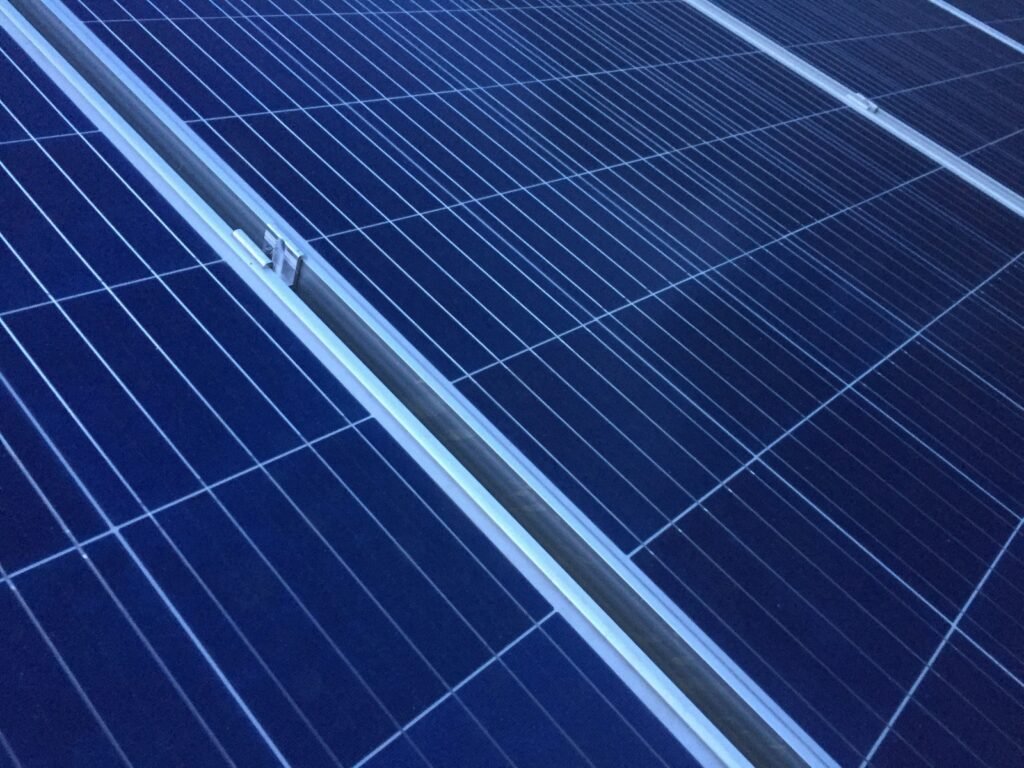Solar Incentives
Solar incentives are tax credits broken down into three levels: Federal, State, and Local.
Quick Links
(Disclaimer- This is a simple guide. Please consult a local tax representative for specific information.)
Federal Tax Credits for Solar Incentives
Introduction
Solar energy systems can significantly reduce your electricity bills and help the environment. Federal tax credits are a powerful incentive that can make solar installation more affordable. This guide provides an overview of the key federal tax credits available for solar energy systems.
Investment Tax Credit (ITC)
Overview
The Investment Tax Credit (ITC) is a federal tax credit that allows you to deduct a percentage of the cost of installing a solar energy system from your federal taxes.
Current Credit Rate
As of 2024, the ITC offers a 30% tax credit for residential and commercial solar systems.
Eligibility
- Available for both new and existing homes.
- Must own the solar system; leases and power purchase agreements (PPAs) do not qualify.
- The solar system must be installed on property you own or lease.
How to Claim:
- File IRS Form 5695 with your tax return.
- Keep records of your installation costs, including receipts and contracts.
Modified
Accelerated Cost Recovery System (MACRS)
Overview
The Modified Accelerated Cost Recovery System (MACRS) allows businesses to depreciate the cost of solar energy systems over a 5-year period.
Benefits
- Accelerated depreciation can significantly reduce your taxable income.
- Can be combined with the ITC for additional savings.
Eligibility
- Available for commercial solar systems.
- Must be used for business purposes.
How to Claim:
- Depreciation is calculated and claimed through your business tax return.
- Consult a tax professional for guidance on claiming MACRS.
Solar Investment Tax Credit for Non-Profits
Overview
Nonprofit organizations can also benefit from the ITC, allowing them to offset the cost of solar installations.
Benefits
- Provides a 30% tax credit, similar to for-profit entities.
- Nonprofits can partner with third-party investors to utilize the tax credits.
Eligibility
- Nonprofit status must be verified.
- The solar system must be used at a nonprofit facility.
How to Claim:
- Partner with a tax equity investor or use a power purchase agreement (PPA) to benefit from the ITC.
- Work with a tax professional experienced in nonprofit solar incentives.
Residential Renewable Energy Tax Credit for Low-Income Households
Overview
Specific provisions may be available for low-income households to access the ITC or receive additional assistance.
Benefits
- Helps make solar energy more accessible to lower-income families.
- Potential for increased credits or rebates through local programs.
Eligibility
- Income requirements vary; check with local programs for details.
- Must meet the general ITC eligibility criteria.
How to Claim:
- File IRS Form 5695 and provide proof of income if required.
- Explore local programs for additional incentives.
Conclusion of Federal Tax Credits
Federal tax credits can make solar energy systems more affordable and attractive. By understanding and utilizing these incentives, you can reduce your installation costs and benefit from clean, renewable energy. For personalized advice, consider consulting a tax professional or solar energy expert.
Feel free to reach out with any questions or for further assistance with your solar energy journey.
Oregon’s State Tax Credits For Solar Incentives
Introduction
Oregon is a leading state in promoting renewable energy, including solar power. The state offers several tax credits and incentives to make solar energy more accessible and affordable for residents and businesses. This guide provides a comprehensive overview of the key state tax credits and incentives available in Oregon for solar energy systems.
Oregon Residential Energy Tax Credit (RETC)
Overview
The Oregon Residential Energy Tax Credit (RETC) was a popular incentive for residential solar installations. However, as of December 31, 2017, this program has been discontinued. For solar installations made before the end of 2017, the RETC may still apply.
Current Status
- For installations prior to December 31, 2017: The RETC allowed up to 50% of the installation cost, capped at $6,000.
- No longer available for new installations post-2017.
Eligibility
- Residential properties.
- Solar systems installed before December 31, 2017.
How to Claim:
- Claim via Oregon Department of Energy’s RETC program if eligible.
- Consult tax records and past documents to verify eligibility.
Oregon Solar + Storage Rebate Program
Overview
The Oregon Solar + Storage Rebate Program provides rebates for solar installations combined with battery storage systems.
Current Rebate Rates
- Up to $5,000 for solar plus storage systems installed in residential properties.
- The rebate amount can vary based on the size of the system and specific program guidelines.
Eligibility
- Residential properties.
- Must include both solar and battery storage.
- System must be installed by a certified contractor.
How to Claim:
- Apply through the Oregon Department of Energy or local program administrators.
- Work with an approved contractor to ensure eligibility and proper installation.
Oregon Clean Energy Property Tax Exemption
Overview
Oregon offers a property tax exemption for clean energy systems, including solar photovoltaic (PV) systems.
Current Status
- Property tax exemption applies to the increased value of your property due to the solar system installation.
Eligibility
- Residential and commercial properties.
- Solar PV systems and other renewable energy technologies.
How to Claim:
- Apply through your local county assessor’s office.
- Ensure proper documentation of the solar system and installation costs.
Net Metering
Overview
Oregon’s net metering policy allows solar system owners to receive credits for excess energy generated by their solar systems. It is a statewide policy; however, it is handled at a local level. (See Local Tax Credit section by clicking here.)
Current Status
- Excess energy produced can be credited to your utility account, reducing future energy bills.
Eligibility
- Residential and commercial properties.
- Solar PV systems connected to the grid.
How to Claim:
- Contact your utility provider to set up net metering.
- Ensure your solar system meets local regulations and interconnection standards.
Oregon Green Energy Technology (GET) Loan Program
Overview
The GET Loan Program provides low-interest loans for renewable energy installations, including solar.
Current Loan Terms
- Competitive interest rates and flexible repayment options.
- Loan amounts vary based on project size and costs.
Eligibility
- Residential and commercial properties.
- Must meet program guidelines for renewable energy systems.
How to Claim:
- Apply through the Oregon Department of Energy.
- Provide project details and financial information.
Conclusion of Oregon Tax Credits
Oregon’s state tax credits and incentives can make solar energy more affordable and appealing for residents and businesses. By taking advantage of these programs, you can reduce your installation costs, benefit from renewable energy, and contribute to a more sustainable future. For personalized guidance, consider consulting with a tax professional or a solar energy expert.
Feel free to reach out with any questions or for further assistance with your solar energy journey.
Local Tax Credits
Florence, Oregon, is committed to supporting renewable energy initiatives, including solar power. While state and federal incentives are well-known, there are also local programs and incentives that can help reduce the cost of solar installations in and around Florence. It may look a little sparce, but we’ll keep you updated as new programs roll out.

Local Utility Provider Programs
Overview
In addition to state and federal incentives, local utility providers may offer specific programs or incentives for solar energy systems.
Net Metering
- While net metering is statewide in Oregon, it is commonly handled at a local level. Local utilities may offer net metering, which allows you to receive credits for excess energy generated by your solar system.
- Check with your local utility provider to confirm participation and specific program details.
- Contact Florence Electric Inc. or your local utility provider for information on net metering and other possible incentives.
- Ensure your solar system meets their requirements for interconnection and net metering.
Additional Resources
Federal
- IRS Website: For official forms and detailed instructions, visit the IRS website.
- Department of Energy (DOE): For more information on solar incentives and technologies, visit the DOE Solar Energy Technologies Office.
- Energy.gov: Homeowner’s Guide to the Federal Tax Credit for Solar Photovoltaics | Department of Energy (Updated April 2024)
State of Oregon
- Oregon Department of Energy (ODOE): For more information on state incentives and to apply for rebates and loans, visit the ODOE website.
- Oregon Solar Energy Industries Association (OSEIA): For updates on solar incentives and industry news, visit the OSEIA website.
- Oregon Public Utility Commission: For details on net metering and utility regulations, visit the Oregon PUC website.


